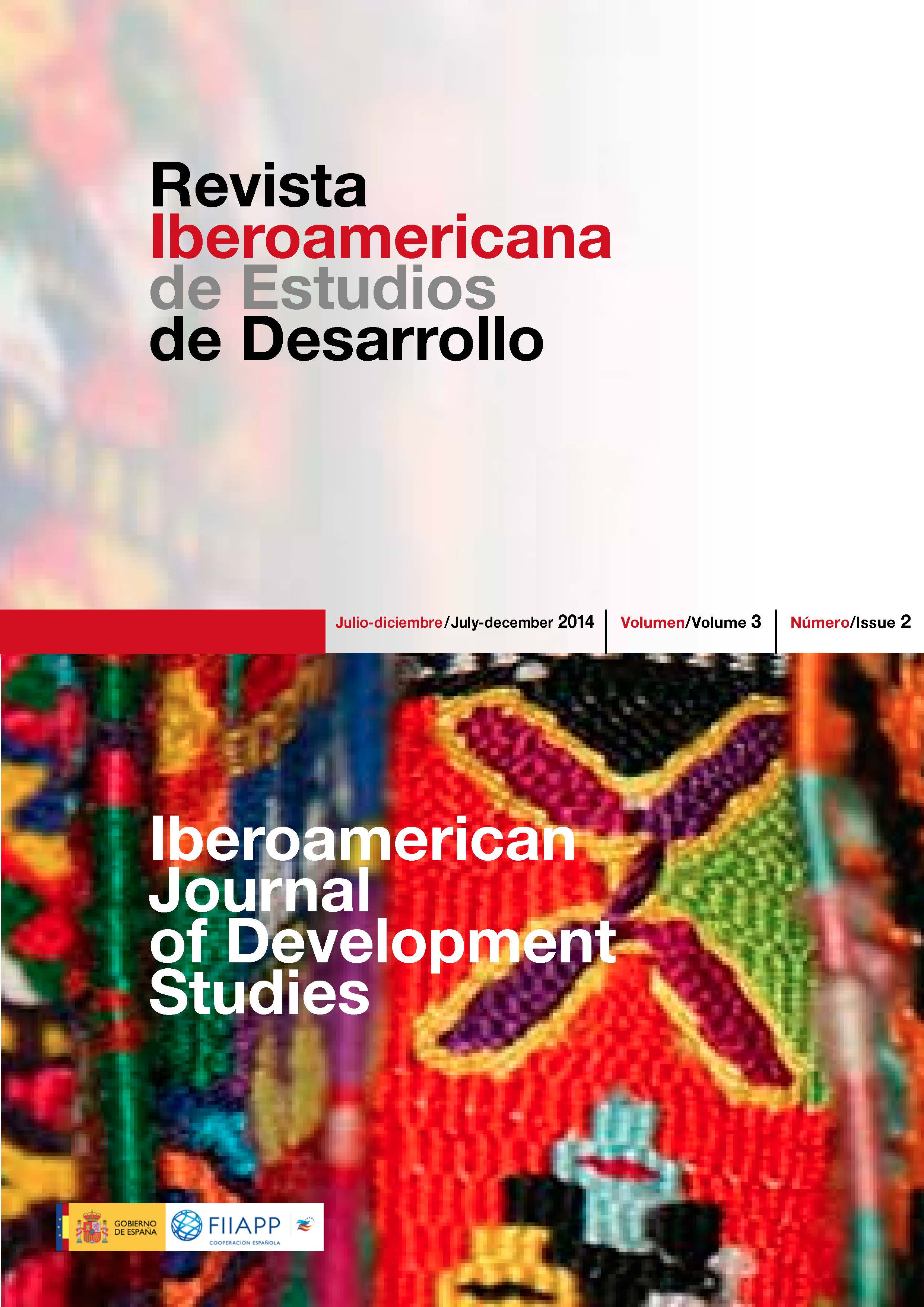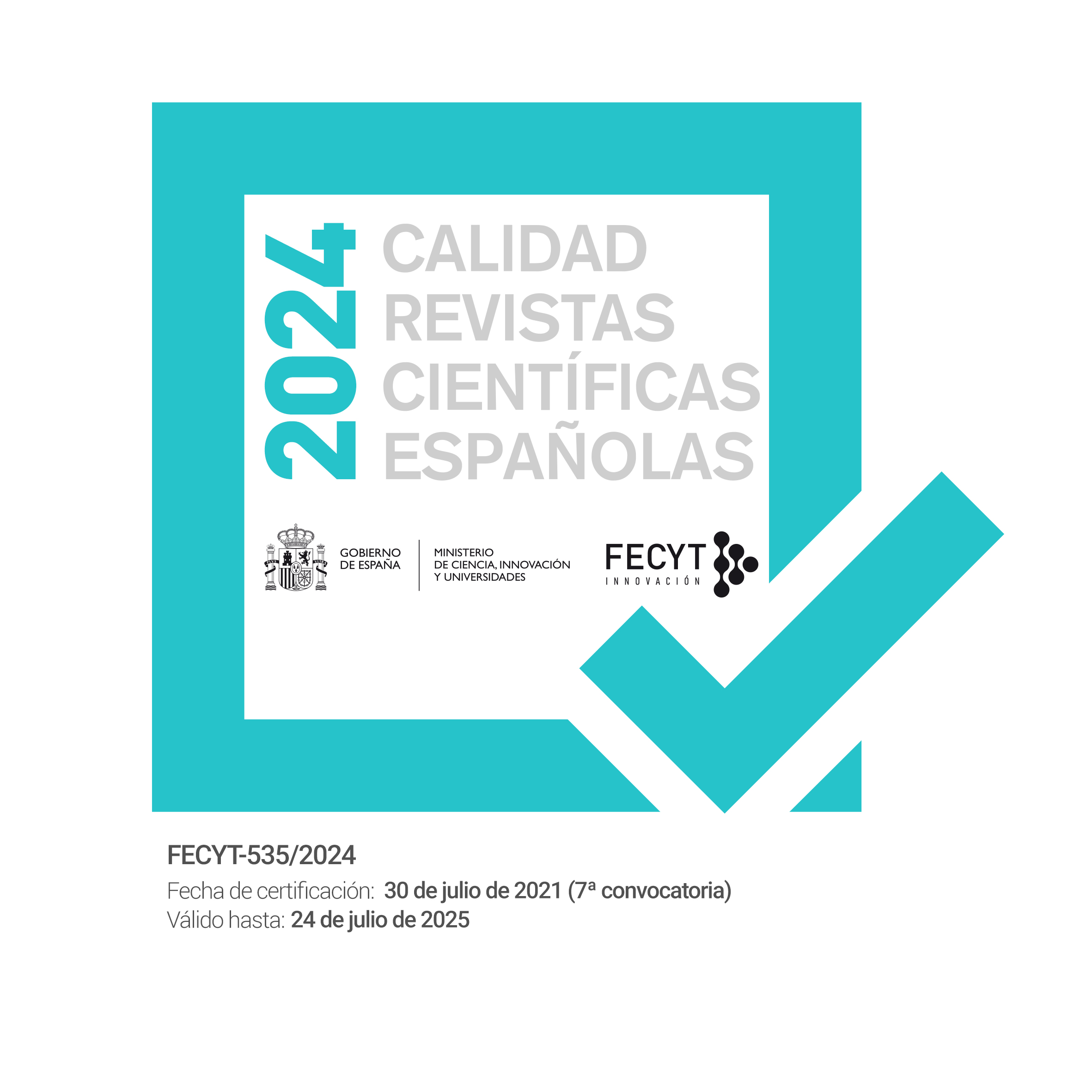Evaluación con perspectiva de género: aprendizajes de la cooperación británica y sueca
DOI:
https://doi.org/10.26754/ojs_ried/ijds.126Palabras clave:
Evaluación, igualdad de género, políticas de cooperación para el desarrolloResumen
La igualdad de género comenzó a incorporarse como tema clave en la evaluación de la ayuda internacional hace dos décadas. Durante estos años, diferentes han sido las experiencias evaluativas que han incluido los contenidos de género destacando, en el contexto europeo, la cooperación oficial británica y sueca. El presente artículo analiza la práctica evaluativa de ambas cooperaciones durante el período 2000-2010 y cómo estos donantes han incluido la igualdad de género en la evaluación. En concreto, revisa la incorporación de los contenidos de género en sus procedimientos, metodologías y prácticas evaluativas. A partir de este análisis, además, presenta algunos aprendizajes para incluir la igualdad de género como un contenido clave en evaluación de cara a alimentar futuros ejercicios de evaluación que contribuyan a la mejora y rendición de cuentas de las políticas públicas de cooperación internacional.
Descargas
Citas
BANCO MUNDIAL (2005). Gender Issues in Monitoring and Evaluation in Rural Development: A Tool Kit. Washington. World Bank
BATLIWALA S (2011). Strengthening Monitoring and Evaluation for Women’s Rights: Thirteen Insights for Women’s Organizations. Toronto, AWID
BATLIWALA S, PITTMAN A (2010). Capturing Change in Women’s Realities. A Critical Overview of Current Monitoring and Evaluation Frameworks and Approaches. Toronto, AWID
BENERÍA L (2005). Género, desarrollo y globalización. Por una ciencia económica para todas las personas. Barcelona, Hacer Editorial
BERGSTÉN S (2001). Sida’s Gender Policy and Evaluations in relation to contemporary academic thinking. Tesina, Gotemburg Universtiy
DAVIES R, DART J (2005) The Most Significant Change (MSC) Tecnique. A Guide to Its Use. Reino Unido, CARE International
DE WAAL M (2006). Evaluating Gender Mainstreaming in Development Practices. In: Development in Practice, 16 (2):209-214
ESPINOSA J (2013a). La evaluación sensible al género: Una herramienta para mejorar la calidad de la ayuda. Cuadernos de género. Madrid, Instituto Complutense de Estudios Internacionales, 2:113-124
ESPINOSA J (2013b). Moving towards gender-sensitive evaluation? Practices and challenges in international development evaluation. Evaluation 19(2):171-182
ESPINOSA J (2013c). Promoting Human Rights and Gender Sensitive Evaluations: Key Ideas for Evaluating Gender Equality Results. Discussion paper presented at UN Women Expert Group Meeting on Gender Mainstreaming Approaches in Development Programming: Being Strategic and Achieving Results in an Evolving Development Context. Santo Domingo, 29-4 a 3-5. 2013
FIDA (1995). Directrices Básicas para la Evaluación de las Cuestiones de Género. Roma, FIDA
GONZÁLEZ L, MURGUIALDAY C (2004). Evaluar con enfoque de género, Cuadernos Bakeaz, 66, Bakeaz, Bilbao
HUNT J, BROUWERS R (2003). Review of Gender and Evaluation, Final Report to DAC Network on Development Evaluation, DAC Evaluation Series. OCDE
JOHNSON R (2005). Not a Sufficient Condition: The Limited Relevance of The Gender MDG to Women’s Progress. In: C. Stweetman (ed.), Gender and the Millenium Development Goals, Oxford, Oxfam GB, pp. 56-66
LIGERO LASA J A (2011). Dos métodos de evaluación: criterios y teoría del programa. Serie CECOD. Madrid, CEU Ediciones
LIGERO LASA J A, ESPINOSA FAJARDO J, MORMENEO C, BUSTELO M (2014). Aproximaciones a hacer una evaluación sensible al género y al enfoque basado en derechos para el desarrollo. Madrid, MAEC. http://www.cooperacionespañola.es/sites/default/files/diferentes_aprox_on-line_definitivo.pdf
MIKKELSEN B (2005). Methods for Development Work and Research. A New Guide for Practitioners. Nueva Delhi, Sage
MOSER CON (1995). Planificación de género y desarrollo. Teoría, práctica y capacitación. Lima, Red Entre Mujeres y Flora Tristán Ediciones
OIT (2007). Guía para la evaluación. Consideración del género en el seguimiento y evaluación de proyectos. OIT
ONU MUJERES (2011). Manual de ONU. Mujeres sobre la evaluación con enfoque de igualdad de género y Derechos Humanos. ONU Mujeres. http://unifem.org/evaluation_manual/es/index.html , acceso, 30 de diciembre de 2013
RAO A, KELLEHER D (2005). Is there life after gender mainstreaming?». Gender and Development, 13(2):57-69
RUIZ-BRAVO LÓPEZ P, BARRIG M (2002). Lineamientos para la incorporación del enfoque de género en el seguimiento y evaluación de proyectos. PREVAL II
UNEG (2011) Handbook for Integrating Human Rights and Gender Equality Perspectives in Evaluations in the UN System. UNEG. http://www.unesco.org/new/fileadmin/MULTIMEDIA/HQ/IOS/temp/HRGE%20Handbook.pdf , acceso, 30 de diciembre de 2013
WOODFORD-BERGER P (2000). Gender Equality and Women’s Empowerment. A DAC review of agency experiences 1993-1998. Estocolmo. ASDI
Descargas
Publicado
Cómo citar
Número
Sección
Licencia
Derechos de autor 2014 Julia Espinosa-Fajardo

Esta obra está bajo una licencia internacional Creative Commons Atribución-NoComercial-SinDerivadas 4.0.






